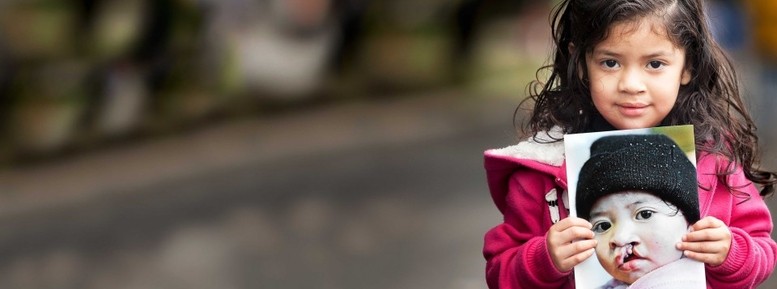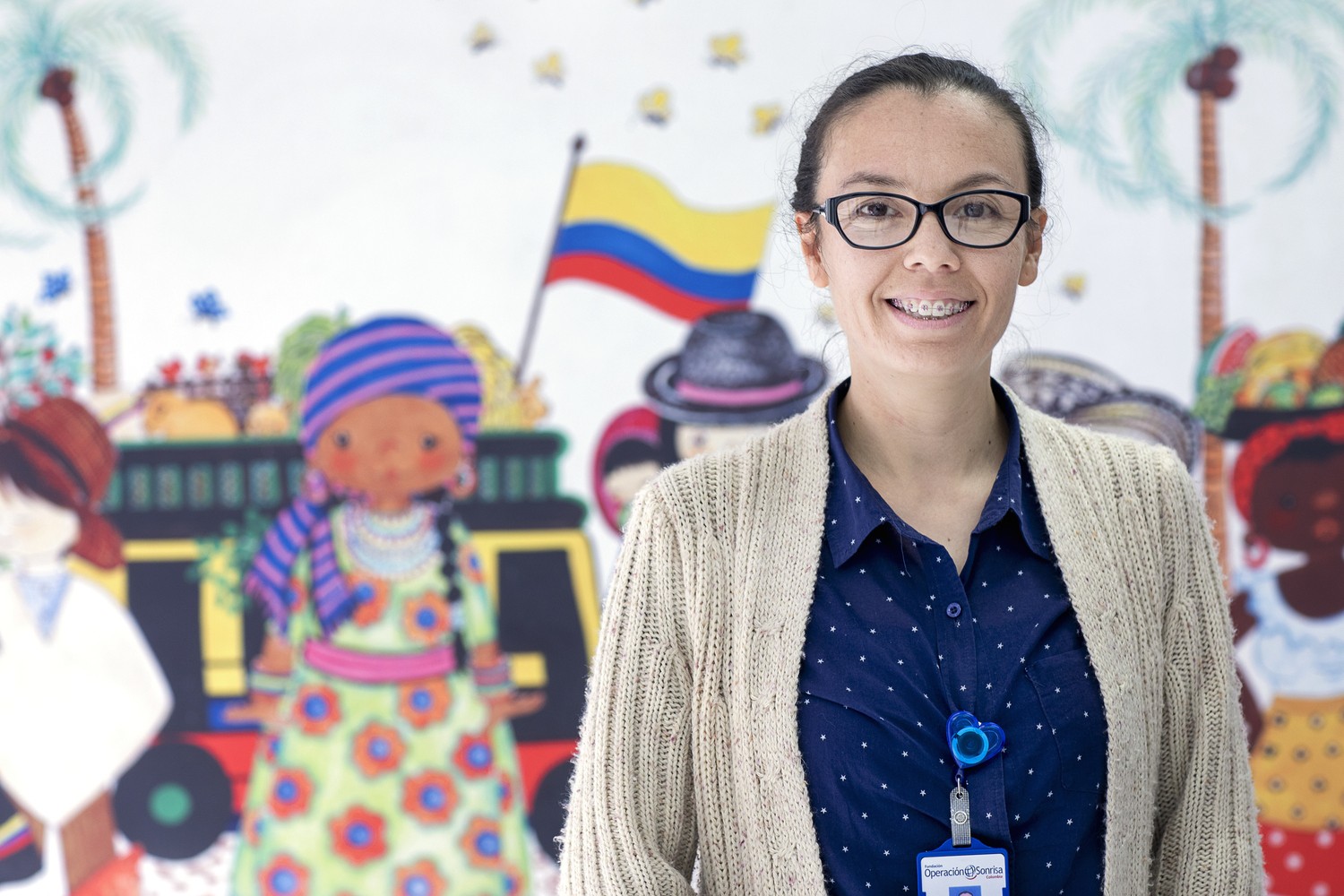
Our promise of improving health and dignity during the COVID-19 pandemic endures. Once again, we’re providing surgery and in-person care while taking stringent measures to keep families safe. Hope is on the horizon. And we remain focused on what cleft care makes possible for children, helping them to better breathe, eat, speak and live with confidence. If you can, when you can, help us keep our promise to care for children and create hope for tomorrow.
Through creating speech therapy programs that are structured around each child’s individual communications needs, volunteer phonoaudiologist Olga Sarmiento ensures patients are given every opportunity to thrive in life long after leaving her care.
After meeting and studying with a phonoaudiologist during college, Olga was introduced to the world of Operation Smile Colombia when she was invited to join the organization in Duitama. While initially hesitant, Olga realized that by providing speech therapy, she could directly impact the lives of children who are living with cleft conditions in the country.
“I accompanied her to work as a volunteer and began doing hearing exams. After that, a position opened. I was available, my resume was accepted and they called me,” Olga said. “It’s been nine years, and I feel like it’s been a month.”
When patients are living with a cleft palate – and even after a palate repair – they can experience difficulties with speaking clearly. Working as a phonoaudiologist at Operation Smile Colombia's care center in Bogota, Olga specializes in identifying those challenges, understanding the stages of communication development and providing specific skills and techniques that her patients require.
In recognition of devoted medical professionals like Olga who continuously put the health and well-being of their patients first, the World Health Organization (WHO) designated 2021 as the International Year of Health and Care Workers.
Whether it’s hearing, comprehension or the pronunciation of words, Olga works to prevent disruptions in a patient’s progress while also improve their abilities during the early stages of growth.
For Olga, the small moments with her patients are what motivate her to continue working with Operation Smile Colombia.
“A simple ‘sss,’ or simply making a ‘p’ – I know that if the child can do that, they can use it for life,” she said.
We recently sat down with Olga to learn more about how her role serves as a vital part to comprehensive care and how reaching children at the ideal developmental stage makes a big difference.
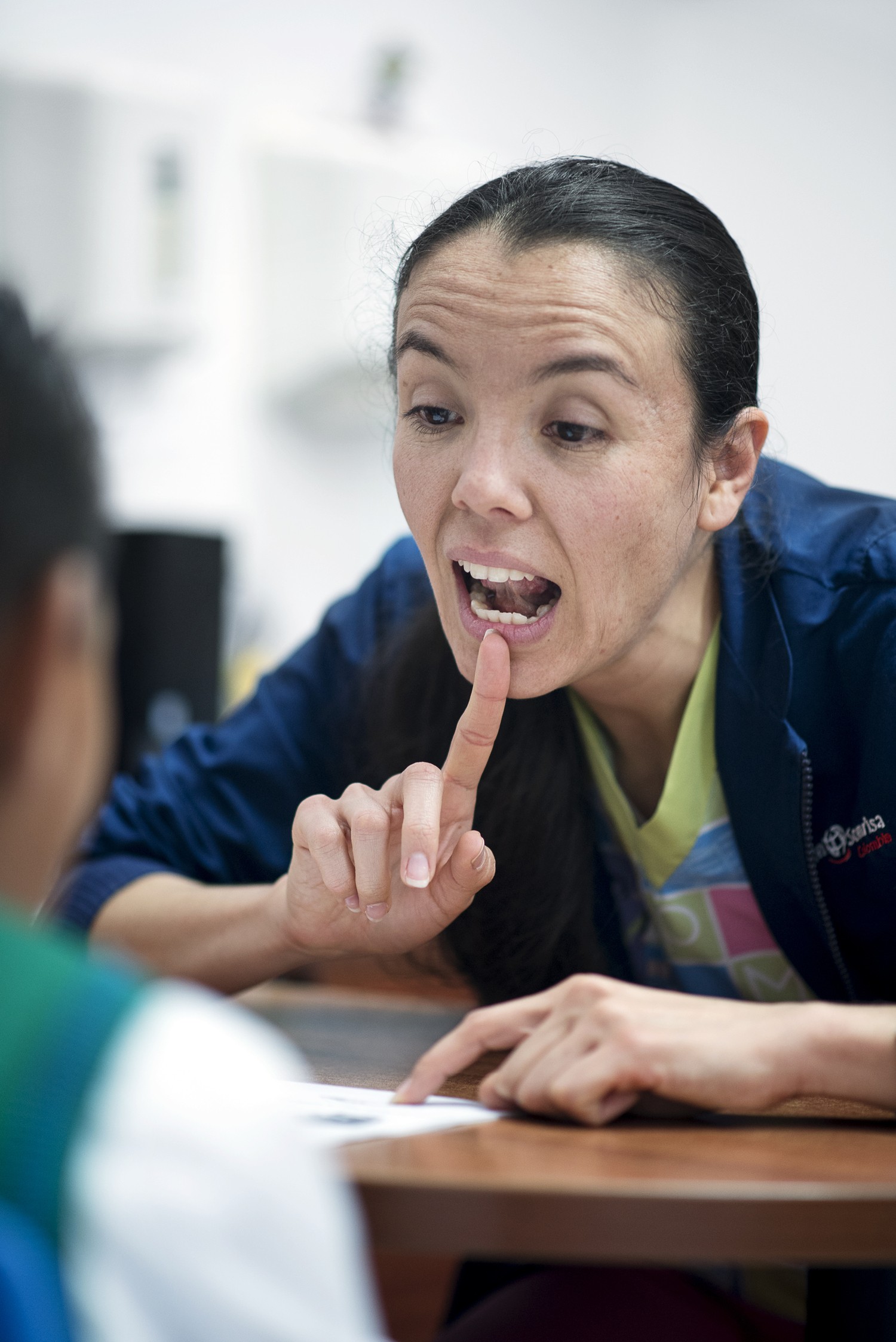
Q: What motivated you to become a volunteer?
A: “The expectations of what I would be able to do, not having a point of reference of what I would encounter. Because really what I have learned from the children, the closeness I have been able to have with them has been incredible and my work fascinates me.”
Q: In your own words, why it is so important for patients to receive all of the multidisciplinary services here, including speech therapy?
A: “Our goal is that the children live each stage the same as children without a cleft condition. If they come here (Operation Smile Colombia), they achieve that.”
Q: What is special and different about working with children with a cleft in comparison to working with children with other speech difficulties?
A: “It’s more difficult. You really don’t know what you’re up against. So, it’s difficult, but at the same time it’s lovely – the sounds. When you don’t know what you’re hearing and don’t know how much the patient is improving. For me, when I’m talking to fathers and mothers around the world, they think that once the palate is closed, the baby will speak perfectly well. That’s not true. Therapy is also necessary.”
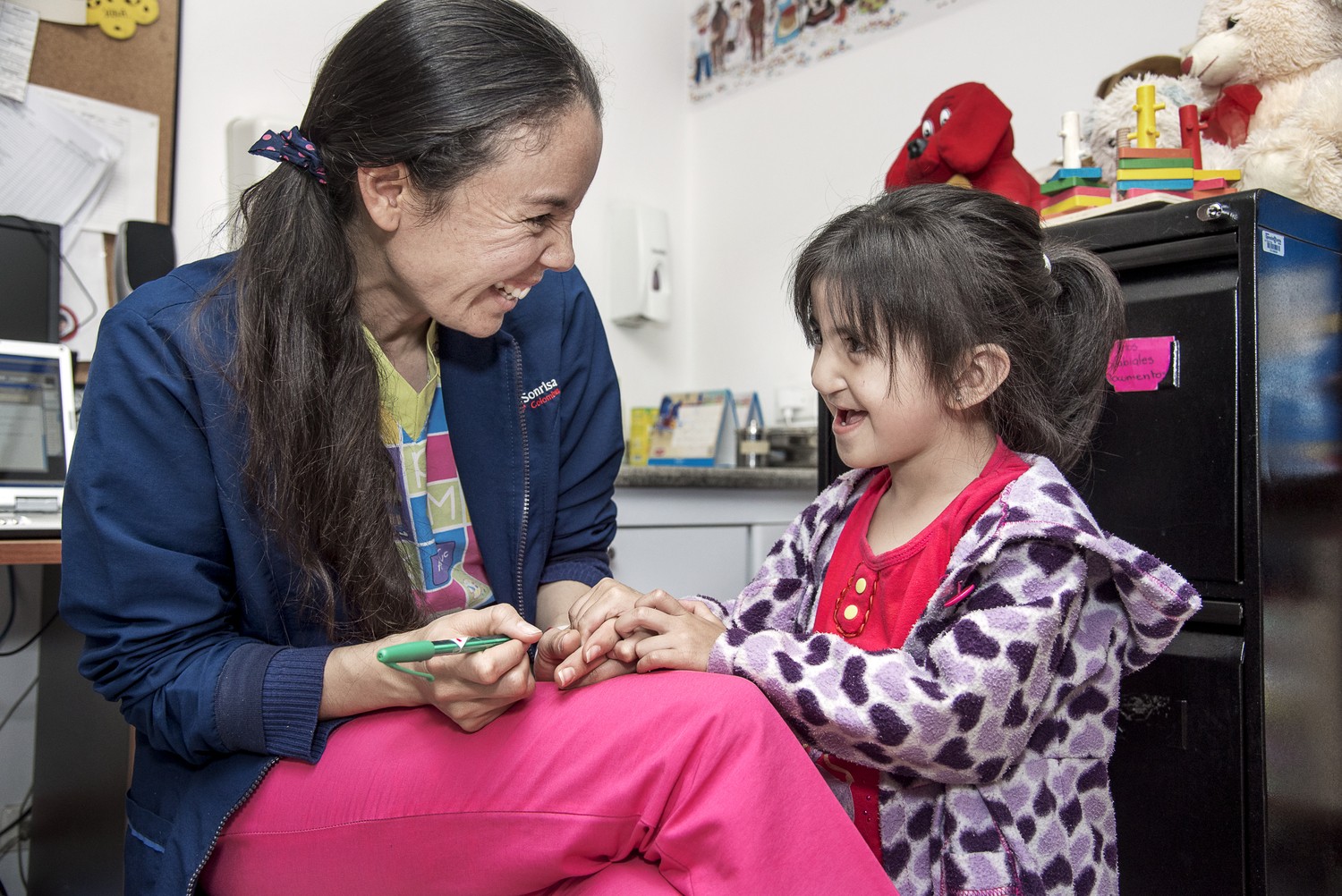
Q: What is the dynamic of working with all the other specialties in the foundation and working together for each individual child?
A: “I consider the key to making it work is the respect for the other areas. I know that you’re the expert in that area, and I respect your procedure and your process as you go along. Personally, I’m very involved, and I’m aware of why they do this in this specialty. I’m always informed of the protocol that each specialty follows to inform the parents of the different areas so they don’t feel like there are so many pieces, but see a sequential order.
“That allows us to work. Let's say that each area has its focal point where it’s the protagonist and other areas where it’s another professional, but the dynamics are that. We haven’t had such complex cases where we’ve had to meet to determine what's best, because all the little ones go along with their respective process within each area, and each one has its objectives. When one goal implies or affects or improves another, then we meet and talk in a very informal way like, ‘Hello, this patient, I think ... what do you think?’ We agree, and that’s how it works.”
Q: For the parents who come in, do they respond well and follow the specific programs you provide their children at home? Do you notice the difference when the child comes in?
A: “If they have a goal for what they hope for their children, and that goal is perfection, they work it. If they aren’t clear with which way they are going, they don’t work on it because they don’t see the results that they want. But those who have their eyes and ears open, they do see the small gains. They get excited and work diligently at home. The clarity about what they have to do, that also motivates them.”
Q: How do you feel when a child graduates from the program?
A: “I feel satisfaction immediately. During the consultation, with each sound that I know would never have happened in the child’s life, thanks to my help, they were able to achieve that. So, the child isn’t talking well but has now made a new sound, that fulfills me.
“With that, I’m happy because I know that from session to session, the child will be demonstrating this. And some day, not too far ahead, we will be getting to the graduation. I make a big deal for the child and their parents. I get so excited, and it’s not even my child.”
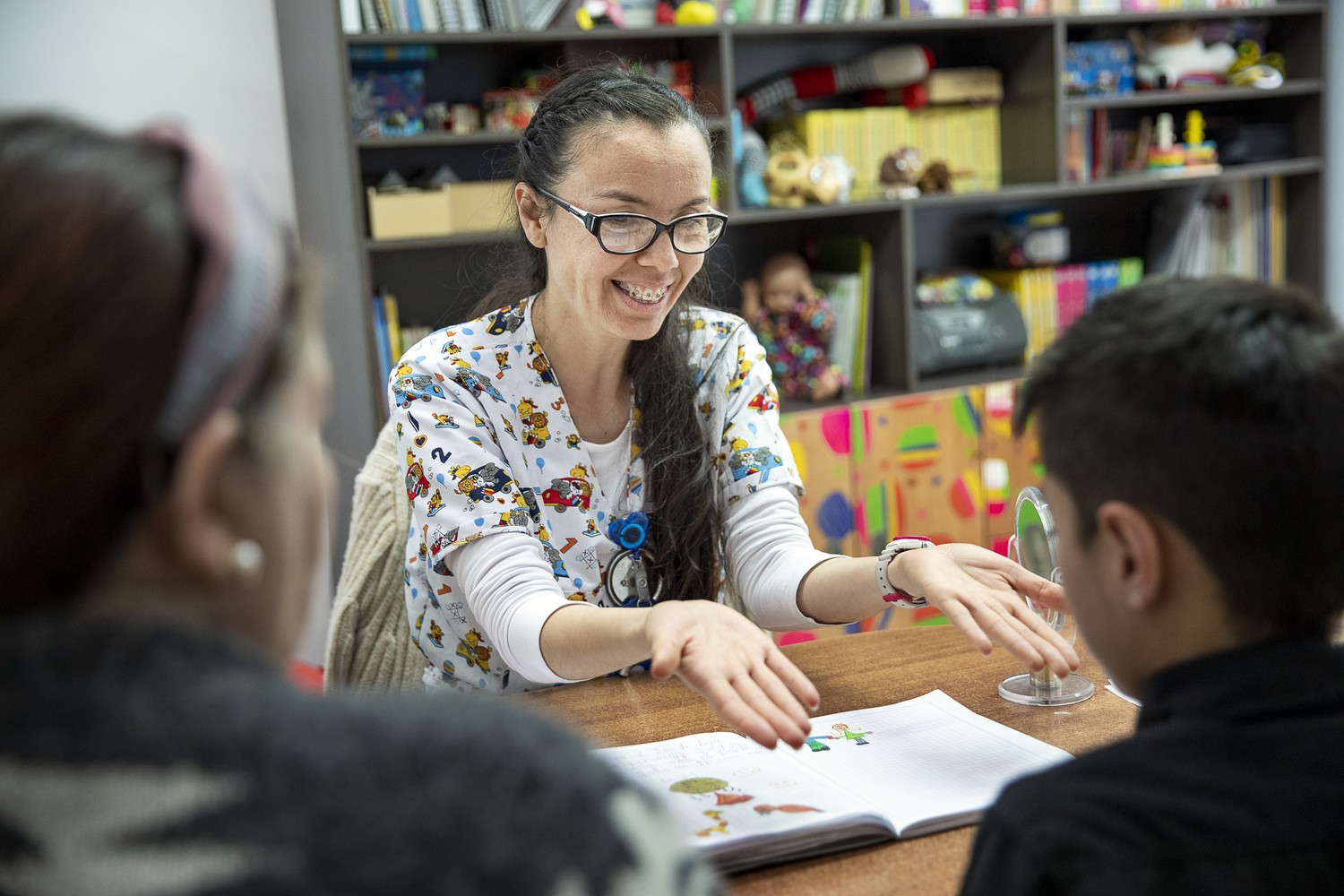
Latest Stories

Mateo's Journey

Meet Isaac

